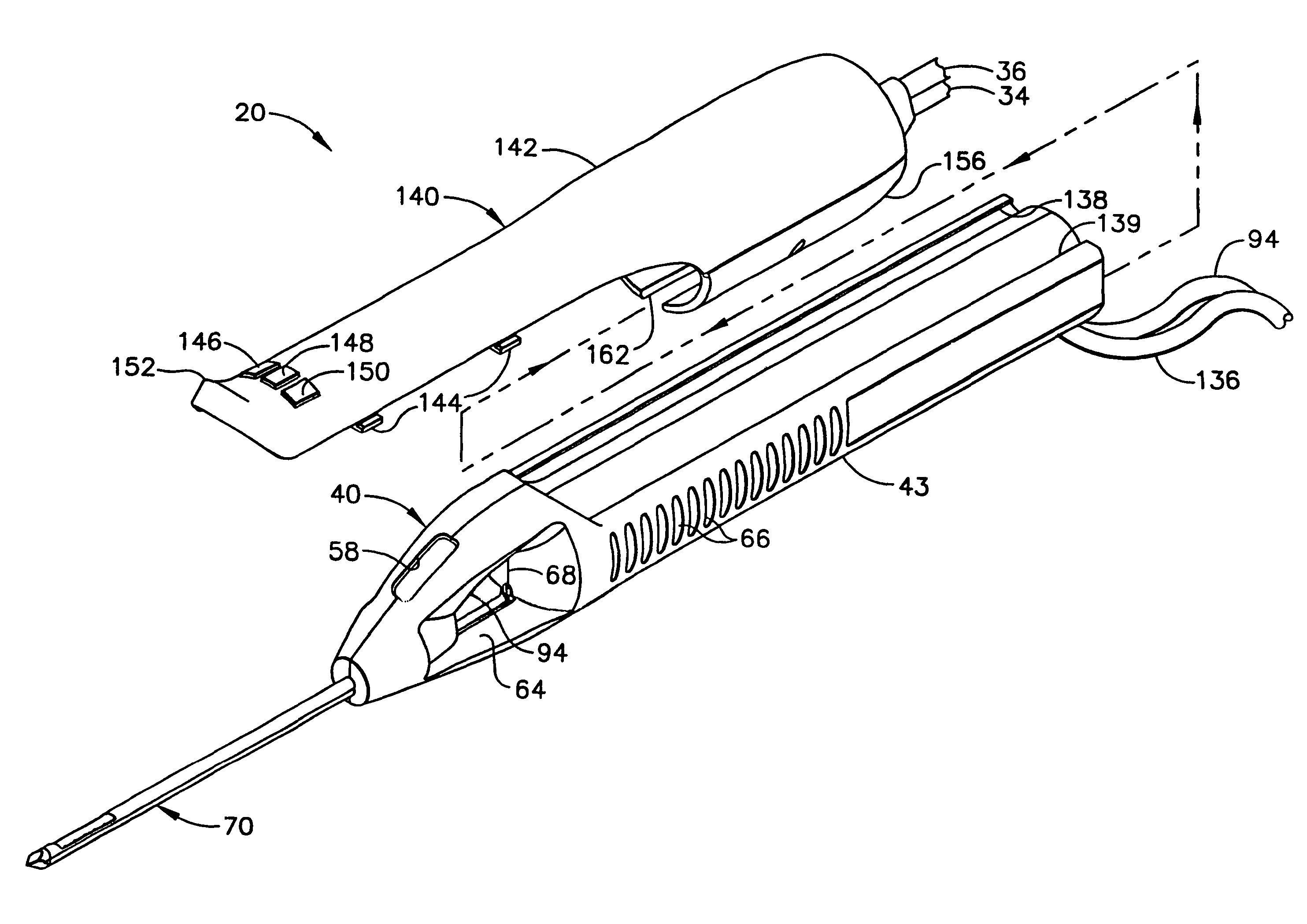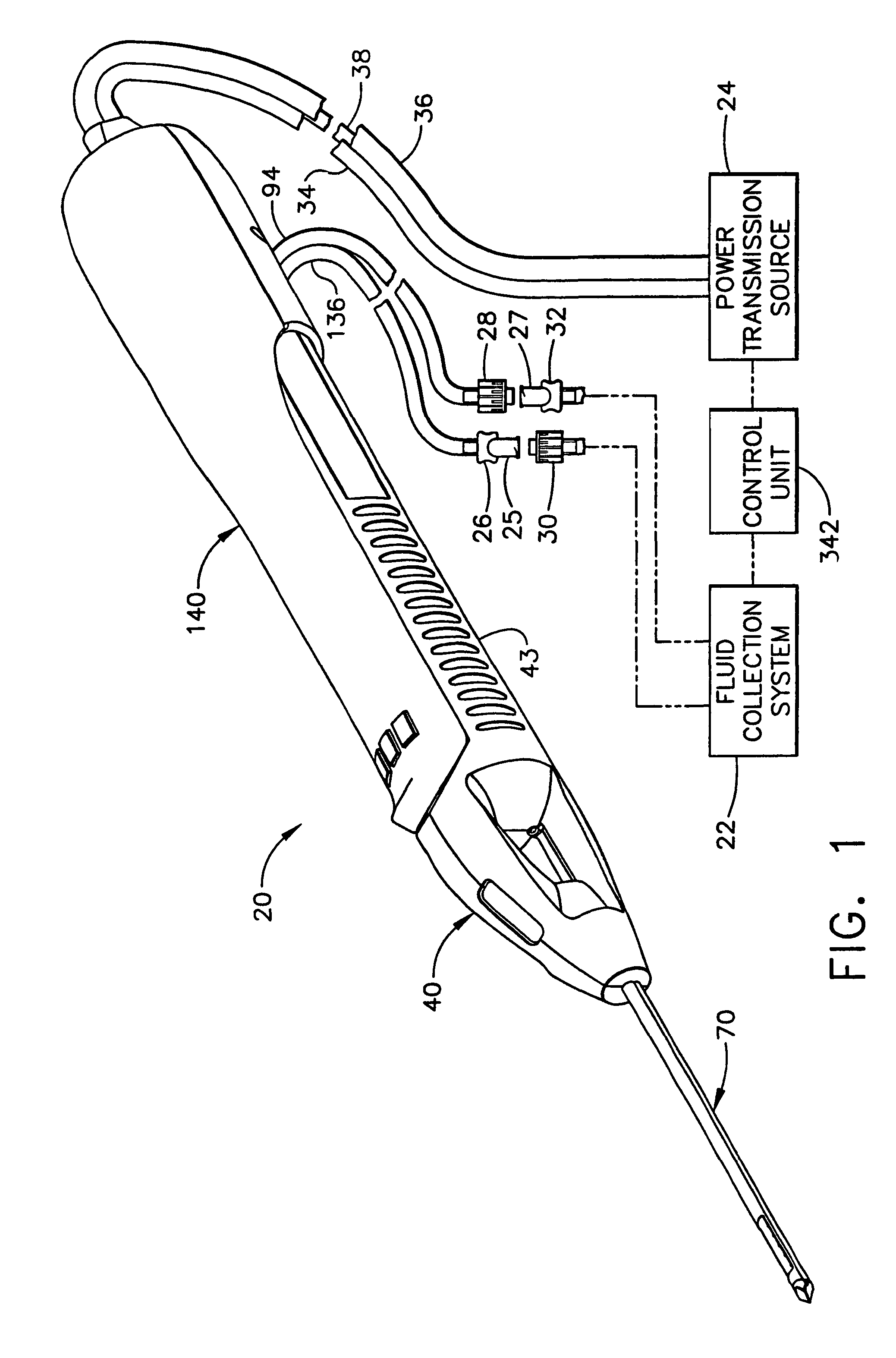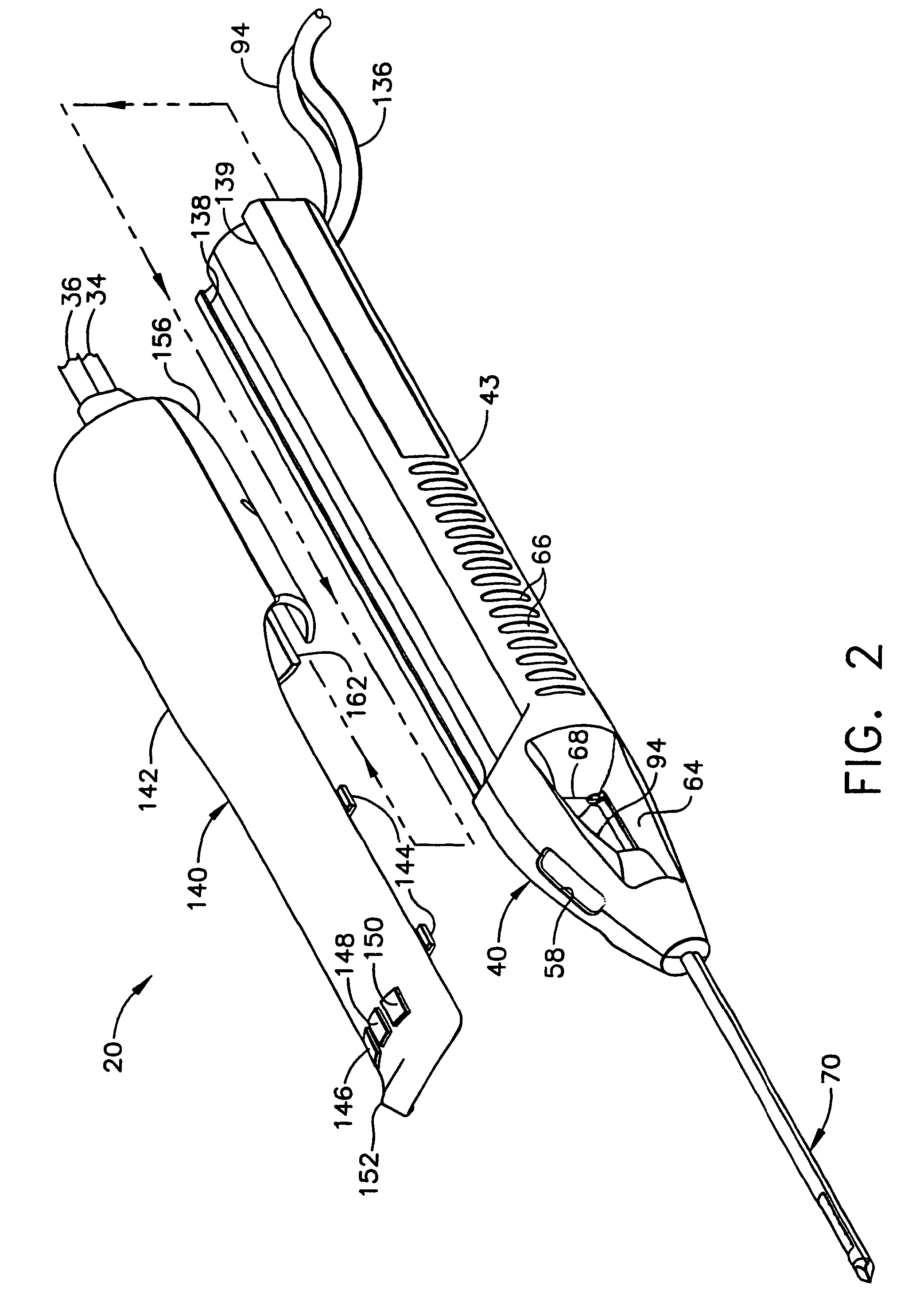Surgical device for the collection of soft tissue
a surgical device and soft tissue technology, applied in the field of tissue sampling devices, can solve the problems of many time-consuming steps in getting the biopsy device properly positioned, affecting the accessibility of certain breast parts, and affecting the degree of freedom of movement of the mounting arm
- Summary
- Abstract
- Description
- Claims
- Application Information
AI Technical Summary
Benefits of technology
Problems solved by technology
Method used
Image
Examples
first embodiment
FIG. 1 shows a biopsy instrument comprising a probe assembly 40, a holster 140 a fluid collection system 22, a control unit 342, and a power transmission source 24. The probe assembly 40, is detachably connected to the holster 140. Together they constitute a lightweight, ergonomically shaped, hand manipulatable portion referred to as a handpiece 20. The probe assembly 40 includes a piercer 70 extending distally from a hollow handle 43. The probe assembly 40 is fluidly connected to the fluid collection system 22 by a first vacuum tube 94 and a second vacuum tube 136. The first and second vacuum tubes are detachably connected to the fluid collection system 22 by a first connector 27 and a second connector 25, respectively. The first connector has a male portion 32 and a female portion 28 attached to the first vacuum tube 94. The second connector 25 has a female portion 30 and a male portion 26 attached to the second vacuum tube 136. The connector portions, 26, 28, 30, and 32, are atta...
second embodiment
FIG. 11 shows an isometric view of the probe lower shell 208 and the holster lower shell 222 of the biopsy instrument 201 of the present invention. The view is shown with the bottom side up in order to clearly present a probe latch 220 which is molded as a cantilever into the probe lower shell 208, and can be deflected downwards by a force applied to a latch ramp surface 223. The latch 220 further comprises a latch projection 219 for insertion into a holster slot 224 as the probe assembly is inserted into the holster 221. The ramp surface 220 is deflected downwards by interaction with an inside surface 225 of the holster shell 222 and retain ably snaps into a slot key 226 when the probe assembly is fully inserted into the holster, thus rotationally engaging the left and right couplers, 240 and 238, to the drive shaft 212 and the gear shaft 210, respectively, as shown in FIG. 10. To remove the probe assembly from the holster, one must press on the projection 219 while pulling them ap...
third embodiment
FIG. 14 shows the relationship of the electro-mechanical components of the present invention to the control unit 342. the present invention is depicted and includes the holster 251 of FIG. 13. A first motor / tachometer combination 338 (sometimes referred to as a first motor / tach) and a second motor / tachometer combination 340 (sometimes referred to as a second motor / tach) are depicted as part of the power transmission source 24, and transmit rotational power to the holster 251 via the first and second rotatable shafts, 264 and 266, respectively. The motor / tach combinations, 340 and 348, are commercially available as DC MicroMotors Series 3863, MicroMo Electronics, Inc. The control cord 265 is electrically connected to a serial controller 380 available as Part No. MCF5206eFT40 from Motorola, Inc. A serial controller 380 is electronically connected to the switchboard 274 by ribbon cable 270 and control cord 265. The serial controller 380 coordinates information exchange across the seria...
PUM
 Login to View More
Login to View More Abstract
Description
Claims
Application Information
 Login to View More
Login to View More - R&D
- Intellectual Property
- Life Sciences
- Materials
- Tech Scout
- Unparalleled Data Quality
- Higher Quality Content
- 60% Fewer Hallucinations
Browse by: Latest US Patents, China's latest patents, Technical Efficacy Thesaurus, Application Domain, Technology Topic, Popular Technical Reports.
© 2025 PatSnap. All rights reserved.Legal|Privacy policy|Modern Slavery Act Transparency Statement|Sitemap|About US| Contact US: help@patsnap.com



